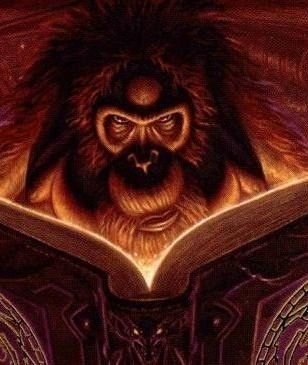What do you think?
Rate this book


457 pages, Kindle Edition
First published June 3, 1999
“Science is not about building a body of known ‘facts’. It is a method for asking awkward questions and subjecting them to a reality-check, thus avoiding the human tendency to believe whatever makes us feel good.”
“Darwin’s theory of evolution explains how lower lifeforms can evolve into higher ones, which in turn makes it entirely reasonable that a human should evolve into an orangutan (while remaining a librarian, since there is no higher life form than a librarian).”
“As humans, we have invented lots of useful kinds of lie. As well as lies-to-children ('as much as they can understand') there are lies-to-bosses ('as much as they need to know') lies-to-patients ('they won't worry about what they don't know') and, for all sorts of reasons, lies-to-ourselves. Lies-to-children is simply a prevalent and necessary kind of lie. Universities are very familiar with bright, qualified school-leavers who arrive and then go into shock on finding that biology or physics isn't quite what they've been taught so far. 'Yes, but you needed to understand that,' they are told, 'so that now we can tell you why it isn't exactly true.'
“Triboplasts played a crucial role in evolution, precisely because they did have internal organs, and in particular they could ingest food and excrete it. Their excreta became a major resource for other creatures; to get an interestingly complicated world, it is vitally important that shit happens.”
